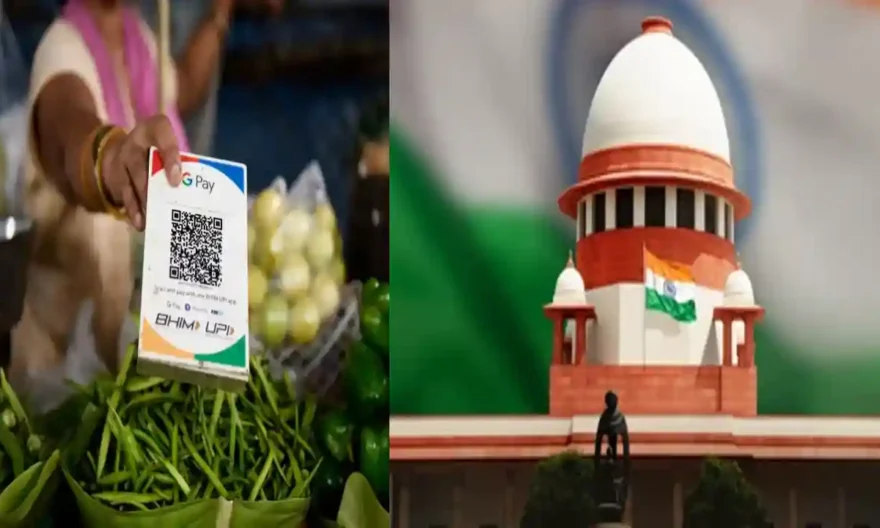
During the hearing of a plea challenging compulsory e-filing in some tribunals, the Supreme Court recently remarked that with the advancement in technology, people are upgrading themselves; even vegetable sellers nowadays are comfortably transacting through mobile phones.
Justice PS Narasimha told the counsel appearing for the petitioner that “People are upgrading themselves. Everyone is upgrading themselves. Don’t convert it into litigation. Even a vegetable seller is transacting comfortably through mobile phones. Lawyers should upgrade themselves as early as possible.”
Therefore, the apex court heard a petition challenging the amended Rule 3 of the e-filing rules as unconstitutional & seeking direction to the Debts Recovery Tribunals (DRT) and Debts Recovery Appellate Tribunals (DRATs) to continue with the hybrid filing of pleadings & applications.
A bench led by CJI DY Chandrachud observed that e-filing provides transparency and efficiency in the administration of justice, and 24/7 access and convenience for lawyers & litigants.
As per the bench, with the emergence of technology, it was too late to postulate that e-filing shouldn’t be the norm, and in fact, the same should be replicated by other courts and tribunals, including the high courts.
However, at the same time, the court noted that it can’t be unmindful of the digital divide in the country as not all citizens can access the internet & technology.
“Technology is an enabler and facilitator and no segment of citizens should be left behind in the adoption of technology.”
Therefore, the court, permitted the lawyers to submit their representation to the Department of Financial Services in case any difficulties are encountered in the process of e-filing. The representation should more focus on concrete suggestions to facilitate the process and transition to e-filing.
The court directed that the chairman of DRT should submit a report to the department every month for 6 months and suggest if the upgradation of any software was required.
Responding to the petitioner’s request to grant an exception to female advocates, the court observed that it was not inclined to accept that there should be a general exception for women.
The court stated that “There’s no reason to postulate that there’s a gender divide in access to technology.”
Therefore, the court clarified that directions are being given for attending to the genuine grievances of members of the bar. Further, the court clarified that the directions shouldn’t stop the Department of Financial Services from making such further changes as may be required to the existing rules.
The court said that the size fits all approach can’t be adopted in all circumstances and situational modifications are required to be made.




